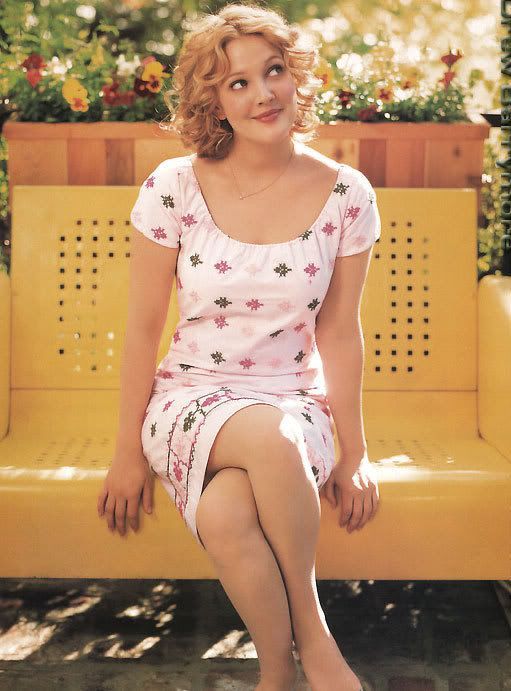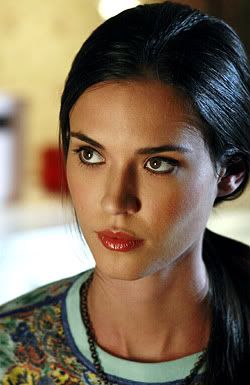I've always been a fan of David Fincher and his exacting filmography. And if there's anyone who's completely bought in to Aaron Sorkin's verbose style and intelligent-discourse-is-sexy scripts, it's me. So the idea of the two of them doing a movie together, any movie, is automatically appealing to me. Even the idea of a "Facebook movie."
fan of David Fincher and his exacting filmography. And if there's anyone who's completely bought in to Aaron Sorkin's verbose style and intelligent-discourse-is-sexy scripts, it's me. So the idea of the two of them doing a movie together, any movie, is automatically appealing to me. Even the idea of a "Facebook movie."
If you've seen the reviews, you don't need me to tell you that the movie's very, very good, perhaps great. It will garner a Best Picture nomination this spring, Fincher will likely be nominated for Best Director, and Sorkin's an early frontrunner for Best Adapted Screenplay. If you were torn on seeing it, do so. It's worth it.
Interestingly, the things that one would think (or, at least, I would think) should weaken the movie are some of its strongest aspects. The casual viewer might assume that watching someone create a website would be boring, or that the bickering of two college kids creating a web start-up would seem small and petty, but these are some of the strongest parts of the film, simply because the audience inherently knows the stakes of these moments. The small decisions to do something one way and not the other, the slights that slowly fester, the little disputes that that brook separation rather than compromise, all move with the weight of the audience understanding that these seemingly throwaway exchanges changed the course of these character's lives - and, by extension, our lives - in a way they can't remotely comprehend at that moment.
Sorkin noted that he would be just as unhappy as Mark Zuckerberg about the movie (Zuckerberg, Facebook's creator and CEO, has refused involvement in the film and refuted most of its content), since the decisions made at 19 years old would make for an unflattering movie for anyone. I imagine that if someone cobbled together my worst moments from age 19 to 21, you would find a tough character to root for. Especially because these battles are over business decisions made by people who aren't actually in business in any real sense of the word. They're college students. They don't understand how the world works.
I'm now 27, and I now have done enough freelance work to have some understanding of how business is done when the work is hammered out in your living room at 3 in the morning, and all contact is just quick emails and short phone calls. But I made mistakes along the way, and I was mistreated by some of the people who contracted me. These things happen when you're young and unfamiliar with business protocol.
A huge part of the film is based on the lawsuit brought by three students who had hired Zuckerberg to build a social networking website for Harvard students. However, Zuckerberg doesn't build this site, instead he builds Facebook and puts it online himself. The students maintain that he'd stolen their idea, whereas Zuckerberg maintains that his idea was different, and better, which is why his idea worked and their site doesn't exist. Sorkin strives to make sure that both points seem valid: Zuckerberg remembers it one way, the students another, and both are convinced their story is the right one.
And isn't that the way things always are? The Social Network has a clearly deliberate Rashomon quality to it. To Zuckerberg, his idea is different from the one proposed to him, because that proposal made him think "well, then, why not this?" Because his mind works ten steps ahead of most people, he misses the fact that there's a logical progression between the idea proposed to him and the site he created, and that progression means something in the business world. It's the same as a bright high school student who finds himself capable of leaping to the answer in his algebra work without working through the steps given to him in the textbook: since he didn't seem to need the steps, he doesn't realize the steps exist whether or not he's cognizant of using them.
All these mistakes and hurt feelings mean so much more because the end result is a multi-billion dollar business, one that everyone feels they have a stake in. But the weakness of the film is that in some ways, it doesn't recognize that in order to buy the emotional investment of the characters, we need to be convinced that their battles are real. The truth matters.
You would think that it wouldn't, since it's just a movie. Both Fincher and Sorkin have admitted to changing details, imagining conversations, combining multiple encounters into one more dramatic one. Sorkin even pushed to deliberately try to make things more fictional than necessary sometime, with the argument that sometime reality isn't the best choice for a story. There's a scene early in the film where Zuckerberg, the night after a bad breakup, builds a website for comparing Harvard girls against each other. In the scene, and in real life, he drinks several bottles of Beck's, but Sorkin wanted him to make a screwdriver in the film, so that it's clear that he set out to get drunk. And there's nothing wrong with that, right? People understand that this movie version of the story, not the real version.
Except that what keeps this story gripping is its ties to real life. There's only so much an audience can care when a movie character gets cheated out of a billion dollars. But if you can say "this is the story of how Eduardo, a real person and the co-founder of a website you use every day, got cheated out a billion dollars back in 2005," then all of a sudden the financial details, the small decisions carry the weight of us understanding that this guy missed out on not just a lot of money, but on Facebook, the behemoth that controls our online consciousness. That's the only reason we can get involved in this story at all.
I think, in a few years, our appreciation of the movie will fade. We'll remember that it takes place mostly in deposition hearings, we'll recognize the unlikabilty of the Zuckerberg character, and most importantly, we'll forget how important Facebook was in our lives. It'll become MySpace, Friendster, and AIM; Homestar Runner and HotOrNot.com. Something we used to do, someplace we used to spend all our time. The movie will seem dated, and maybe even a little silly. Imagine a website about the founding of any one of those sites. Who would care? Who can even remember?
But as a movie about now, as a movie primed to tap into the zeitgeist, it's damn near perfect. Get out and see it.

 9. Florence and The Machine - 'Lungs'.
9. Florence and The Machine - 'Lungs'. 8. Gungor – ‘Beautiful Things’
8. Gungor – ‘Beautiful Things’ 7. Robbie Seay Band - 'Miracles'
7. Robbie Seay Band - 'Miracles' 6. Freelance Whales - 'Weathervanes'
6. Freelance Whales - 'Weathervanes' 5. Gatlin Elms - 'Carry Me Home'
5. Gatlin Elms - 'Carry Me Home' 4. Jars of Clay – ‘The Shelter’
4. Jars of Clay – ‘The Shelter’  3. Guster – ‘Easy Wonderful’
3. Guster – ‘Easy Wonderful’  2. Arcade Fire – ‘The Suburbs’
2. Arcade Fire – ‘The Suburbs’ 1. Kanye - 'My Beautiful Dark Twisted Fantasy'
1. Kanye - 'My Beautiful Dark Twisted Fantasy'























